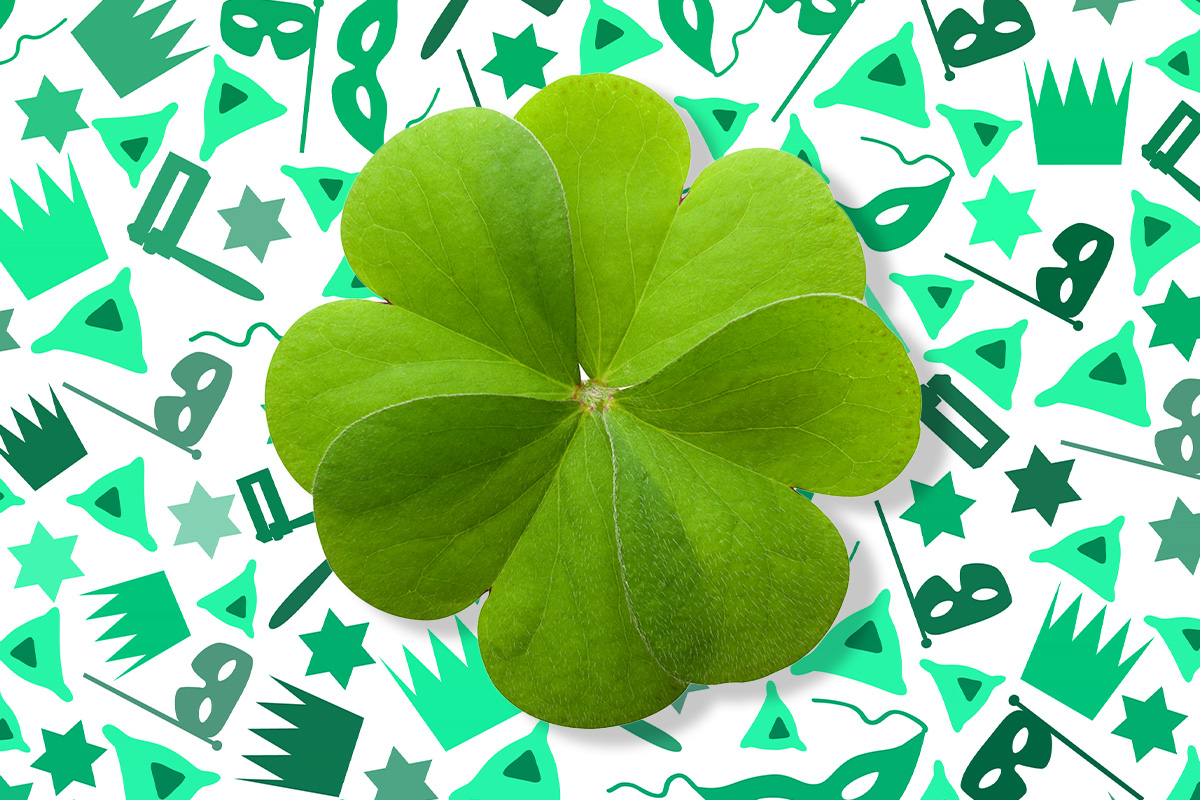I grew up near my paternal grandparents, and would spend St. Patrick’s Day with my Nana as it often coincided with my school’s spring break. We’d dress in green head-to-toe, with shamrock pins and “Kiss Me, I’m Irish” buttons; Grandad, ever the curmudgeon, would wear a button reading “Honorary Irish.” Nana was proud to be “one hundred percent Irish” and would tell me how she and her sister were the only members of her family left who were — everyone else had passed away or married people of other backgrounds.
For me, someone who grew up in an interfaith home with one parent who was Jewish and one who wasn’t, this cultural mixing was just an everyday part of life. In fact, it was fun. One year my class had a heritage food day where we all brought in our favorite foods from our background, and I ate baklava alongside my mom’s coconut macaroons. When we were little, one of my cousins and I thought that because I was Irish and she was Chinese, that meant that she was Irish and I was Chinese, too.
It wasn’t until I was 10 years old or so — old enough to develop more of a religious consciousness — that the idea of ethnic mixing suddenly seemed bad to so many people around me.
When I think of my memories of Purim, they don’t feel like St. Patrick’s Day. I think of rushing through the fastest Megillah reading I’d ever heard, organized by the kosher cooks at my college during a break between classes. I think of my rabbi dressed as Mario, his wife as Princess Peach. I think of the Purim spiel I attended right before COVID shutdowns began, not knowing that the group’s “West Side Story” inspired rendition of “When You’re a Jew” would be the last theater I’d see for ages.
I don’t associate Purim celebrations with my Jewish Grandmom because we never spent it together; she lived in Massachusetts while I grew up in Maryland, and though I knew from adolescence that my soul was unequivocally Jewish, I was closer, both physically and figuratively, with the Christian side of my family.
Despite my disconnect between the holidays, they’re somewhat similar: We eat, we drink, we celebrate our heritage, we wear clothes we might not normally wear. Though the Megillah lays out the Purim story, the lore of St. Patrick’s Day is a little less codified. Now a Mardi Gras-like celebration (especially for Christians abstaining from alcohol or certain foods during Lent, who may relax their abstinence on the 17th), St. Patrick’s Day may have originated as a pagan festival before the story of Patrick spreading Christianity in Ireland became more popular. As wearing green became associated with the Irish fight for independence and self-determination from the British, the holiday came to take on a Purim-like aspect of victory over oppressors.
Learning that Purim begins the sundown before St. Patrick’s Day this year made me both excited and wistful. I know I’m not the only Irish Jew who’s ready to combine the two holidays in a celebration of perseverance, agency and an all-out good time, likely infused with alcohol. (What if you took a shot of Bailey’s every time you heard “Haman?”)
But the combination also reminds me how much I ache to talk to both my grandmothers, who died three weeks apart 16 months ago. The loss of one is exacerbated by the loss of the other. Nothing can prepare you to lose loved ones so close together; nothing could ever have prepared me to watch both my parents lose their mothers less than a month apart.
My grandmothers felt like my backbone, even when we argued, and even after Nana began to lose her memory. I’m alive by the grace of God, but also by the grace of two women who fought to instill in me a sense of pride for where we came from, a thorough knowledge of our lineage and how it guides us through the world now. Losing them both so quickly felt like losing my own shadow, like there’s no one behind me looking out to tell me which path is clear and which will trip me up.
Though they would probably disagree if they were here, I think my grandmothers were a lot more alike than they realized. They both struggled until they went back to school in their adulthood, after their children became self-sufficient. They both refused to concede to the gender politics of work, even under pressure from colleagues and family.
I can’t say that I hope they’re proud of me or that I know they’re looking out for me, because that aspect of grief feels trite. I lost them in the midst of the pandemic, before vaccines were available, so I did not get any saccharine closure or heartfelt last goodbyes; I didn’t even get to sit shiva with my family out of state. But I think I got their grit, their pride and their determination to walk forward with a sense of purpose greater than any job or status could give me. And from each of them, I got parts of my name, as well as my appearance, according to my family.
Maybe they can look past their differences somewhere in the next life and have some hamantaschen and Guinness together.



